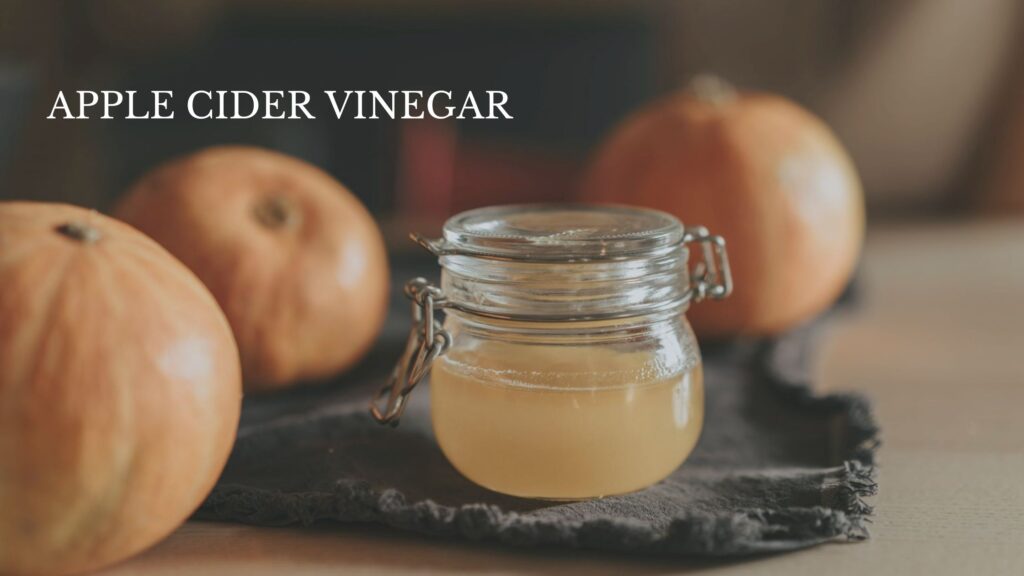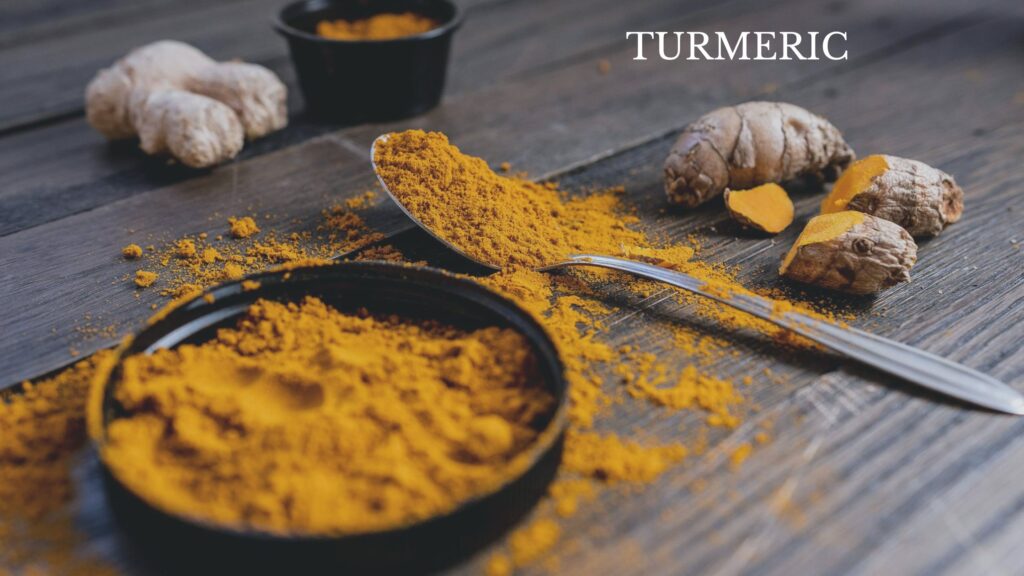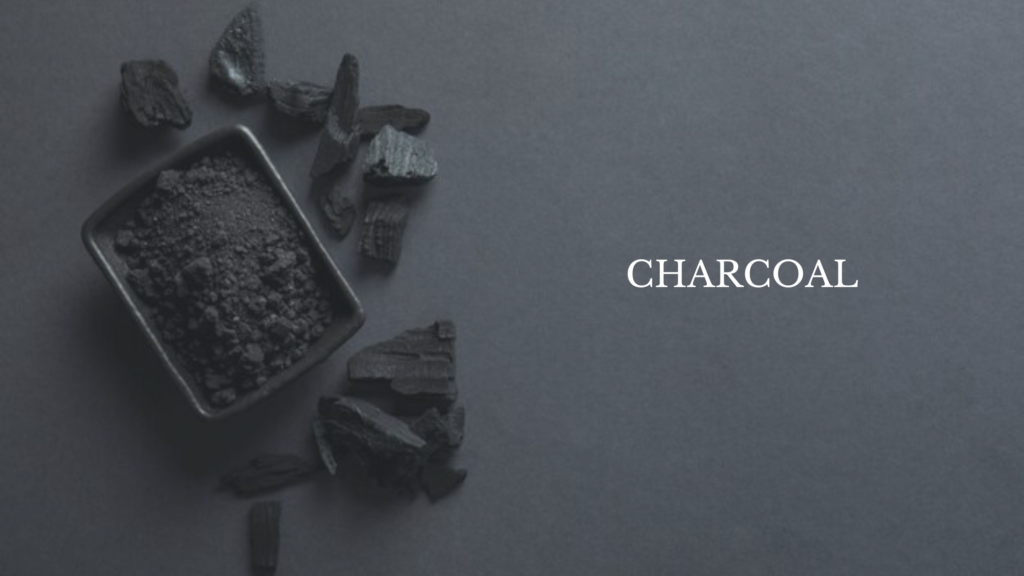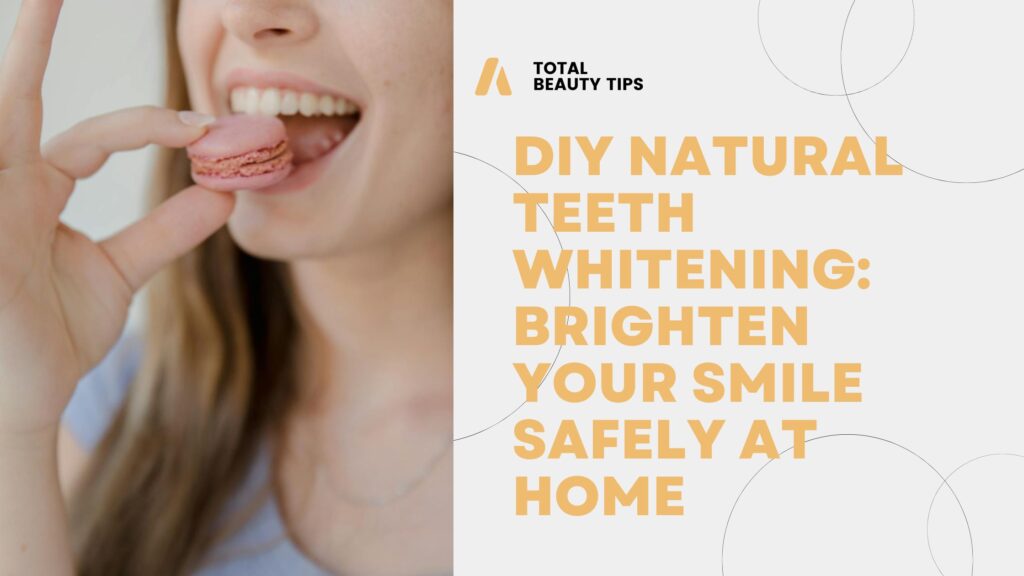A bright, white smile is highly sought after as it is seen as a valuable social asset. Fortunately, many professional oral care products make it possible to teeth whitening at home. If you want to whiten your teeth, some remedies might help, but it’s important to be cautious with at-home whitening products. Misuse can damage your enamel, leading to sensitivity and cavities. Teeth discoloration can be gradual and subtle, with some yellowing being unavoidable. As you age, your teeth may appear more yellow or darker because the outer enamel wears away, revealing the yellow dentin underneath. Dentin is the second layer of calcified tissue beneath the enamel.
Let’s delve into some effective methods that can help you achieve a dazzling smile from the comfort of your home.
Read More: Superfoods for Radiant Hair: Boost Your Hair Health Naturally
Natural Remedies for Your Teeth Whitening
According to the American Academy of Cosmetic Dentistry, many people are exploring teeth whitening options because they desire a whiter and brighter smile. While professional treatments are available, there are also natural remedies that can be effective. Here are seven great and helpful natural remedies that you can try at home to help whiten your teeth.
1. Baking Soda and Hydrogen Peroxide
A mixture of baking soda and hydrogen peroxide can act as a natural teeth whitener. The mild abrasiveness of baking soda helps to scrub away surface stains, while hydrogen peroxide acts as a bleaching agent.
2. Oil Pulling
Swishing oil, such as coconut oil, in your mouth for several minutes can help remove plaque and bacteria that cause yellowing. This ancient practice is believed to improve oral hygiene and whiten teeth over time.
3. Apple Cider Vinegar Rinse

Apple cider vinegar (ACV) is a versatile ingredient with numerous health benefits, including teeth whitening. ACV contains acetic acid, which has natural bleaching properties that can dissolve stains and brighten teeth. However, ACV is highly acidic and can erode enamel if used undiluted or excessively, so it’s important to dilute it before use. To make an ACV rinse, mix one part ACV with two parts water. Swish the mixture in your mouth for about 30 seconds, ensuring it reaches all areas. Spit out the rinse and rinse your mouth thoroughly with water afterward. Use the ACV rinse only once or twice a week to avoid damaging your enamel.
4. Strawberries and Baking Soda
Strawberries are not just a tasty and healthy fruit; they can also help whiten your teeth naturally. They contain malic acid, which can remove surface stains and brighten your teeth. When mixed with baking soda, strawberries create an effective whitening scrub. To make the scrub, mash one ripe strawberry and combine it with half a teaspoon of baking soda to form a paste. Apply this paste to your toothbrush and gently brush your teeth for two minutes. Rinse thoroughly afterward to get rid of any residue. Since strawberries are acidic, use this scrub only once or twice a week to prevent damaging your enamel.
5. Turmeric

The warm, bitter spice known for flavoring curry is also a natural dye that can turn white fabric a bright gold. Supposedly, turmeric paste can also transform dingy teeth back to pearly white. Hold the mustard, though—there’s no solid research to support this claim. While some people swear by its teeth-whitening properties, it’s important to approach this remedy with caution and to consider other proven methods for achieving a brighter smile.
6. Activated Charcoal

Activated charcoal can absorb chemicals, but it’s uncertain whether it removes stains from tooth enamel or just acts as a surface scrub. Its effectiveness in teeth whitening remains a topic of debate. According to a study in the Journal of the American Dental Association, more research is needed to fully understand its effects. While some users report positive results, it’s important to use it cautiously and be aware that its long-term impact on dental health is not yet fully known.
7. Coconut Oil Pulling
Coconut oil pulling is an ancient Ayurvedic practice that involves swishing oil in your mouth to enhance oral health. This method can promote gum health, freshen breath, and help remove stains, naturally whitening your teeth. Coconut oil contains lauric acid, which has antimicrobial properties to eliminate bacteria in the mouth.
To perform coconut oil pulling, take one tablespoon of organic, cold-pressed coconut oil and swish it in your mouth for 15-20 minutes. Make sure to pull the oil through your teeth and around your gums. Afterward, spit the oil into a trash can (not the sink, to prevent clogging) and rinse your mouth thoroughly with water. Practice coconut oil pulling daily or a few times a week for noticeable results.
By incorporating these natural remedies into your routine, you can achieve a brighter smile without the need for harsh chemicals or expensive treatments.
Conclusion
Achieving a brighter smile doesn’t have to involve costly dental procedures or harsh chemicals. By incorporating natural teeth whitening remedies into your oral care routine, you can effectively remove stains and brighten your teeth affordably. Remedies like baking soda and lemon juice paste, activated charcoal, coconut oil pulling, apple cider vinegar rinse, and strawberries mixed with baking soda offer various options. Experiment with these methods to discover what works best for you.Maintain a healthy oral hygiene routine by brushing twice daily, flossing every day, and visiting your dentist regularly for check-ups and cleanings. Combining these practices with natural remedies can help you achieve and sustain a radiant smile.
Frequently Asked Questions
1. Why do teeth become yellow?
Teeth lose their bright white color over time and often shift towards a yellowish appearance due to several factors. Staining beverages like coffee, tea, and red wine can penetrate the enamel, the outer layer of teeth, and build up residue that adds a yellow tint. Additionally, plaque buildup and smoking contribute to yellowing. Natural aging also thins the enamel, revealing the yellowish dentin underneath.
2. Is it possible to skip brushing our teeth?
While flossing and oil pulling can be beneficial supplements to oral hygiene, brushing your teeth is essential. The Indian Dental Association (IDA) recommends brushing with a soft or extra-soft bristle toothbrush for two minutes twice daily. Brushing helps eliminate bacteria that cause tooth decay and gum disease. Skipping this crucial step can lead to plaque buildup, cavities, and gum disease, making brushing irreplaceable in maintaining oral health.
3. Can turmeric make teeth whitening?
Research has not found scientific evidence to support the claim that turmeric is an effective teeth-whitening agent. Though turmeric is known for its health benefits and vibrant yellow color, it doesn’t have proven whitening effects on teeth. However, it’s unlikely to stain your teeth unless consumed in large quantities regularly.
4. What are some ways to Teeth Whitening at home?
To teeth whitening at home, use over-the-counter products like whitening toothpaste, strips, or gels designed for safe and effective results. Baking soda mixed with hydrogen peroxide can also be a mild, natural whitening agent. Additionally, maintaining good oral hygiene practices such as regular brushing, flossing, and rinsing with mouthwash can help prevent stains and maintain a brighter smile.
5. What methods do dentists use to Teeth Whitening?
Dentists use professional-strength hydrogen peroxide or carbamide peroxide gels for faster in-office whitening. They may also provide customized trays with prescription-strength bleach gels for at-home use. These professional treatments are more effective and safer than over-the-counter options due to the higher concentration of active ingredients and the supervision of a dental professional.
6. What is the most effective way to Teeth Whitening?
The most effective way to whiten teeth is to consult with a dentist for professional in-office whitening or supervised at-home methods. These approaches ensure safety and effectiveness tailored to your specific dental needs. While natural remedies and over-the-counter products can help, they may not provide the same level of results as professional treatments. Maintaining good oral hygiene is also crucial for keeping teeth white and healthy.


